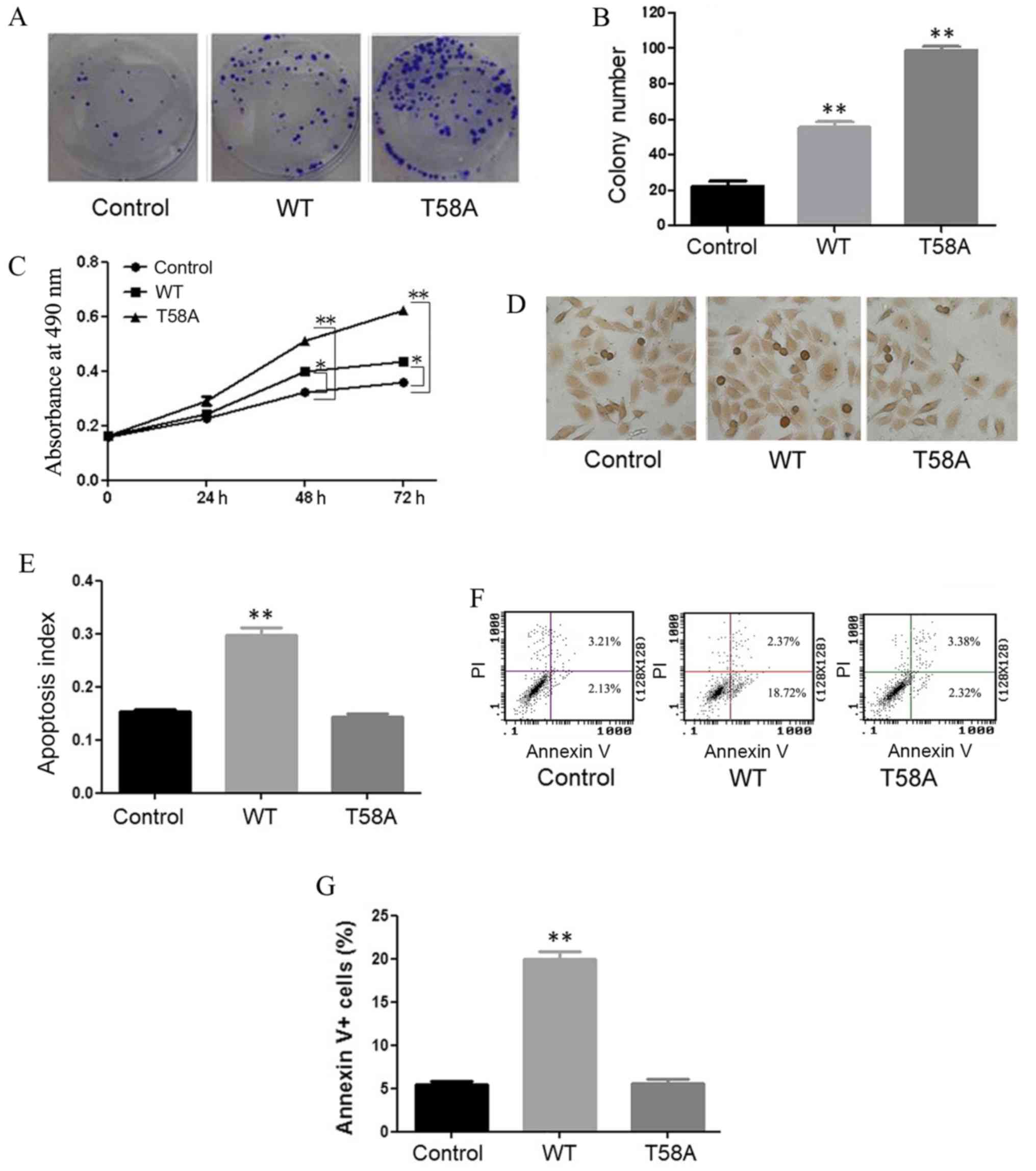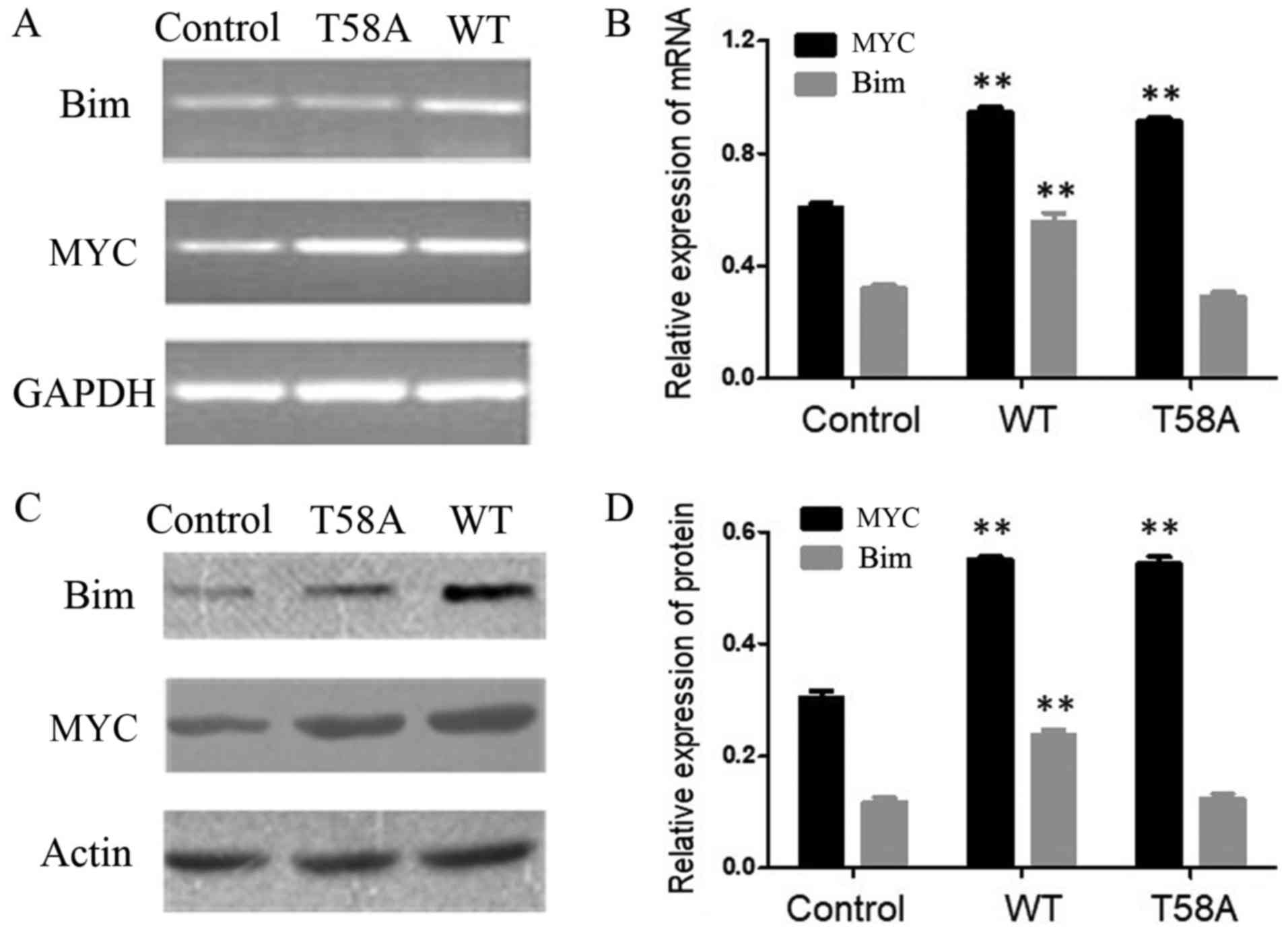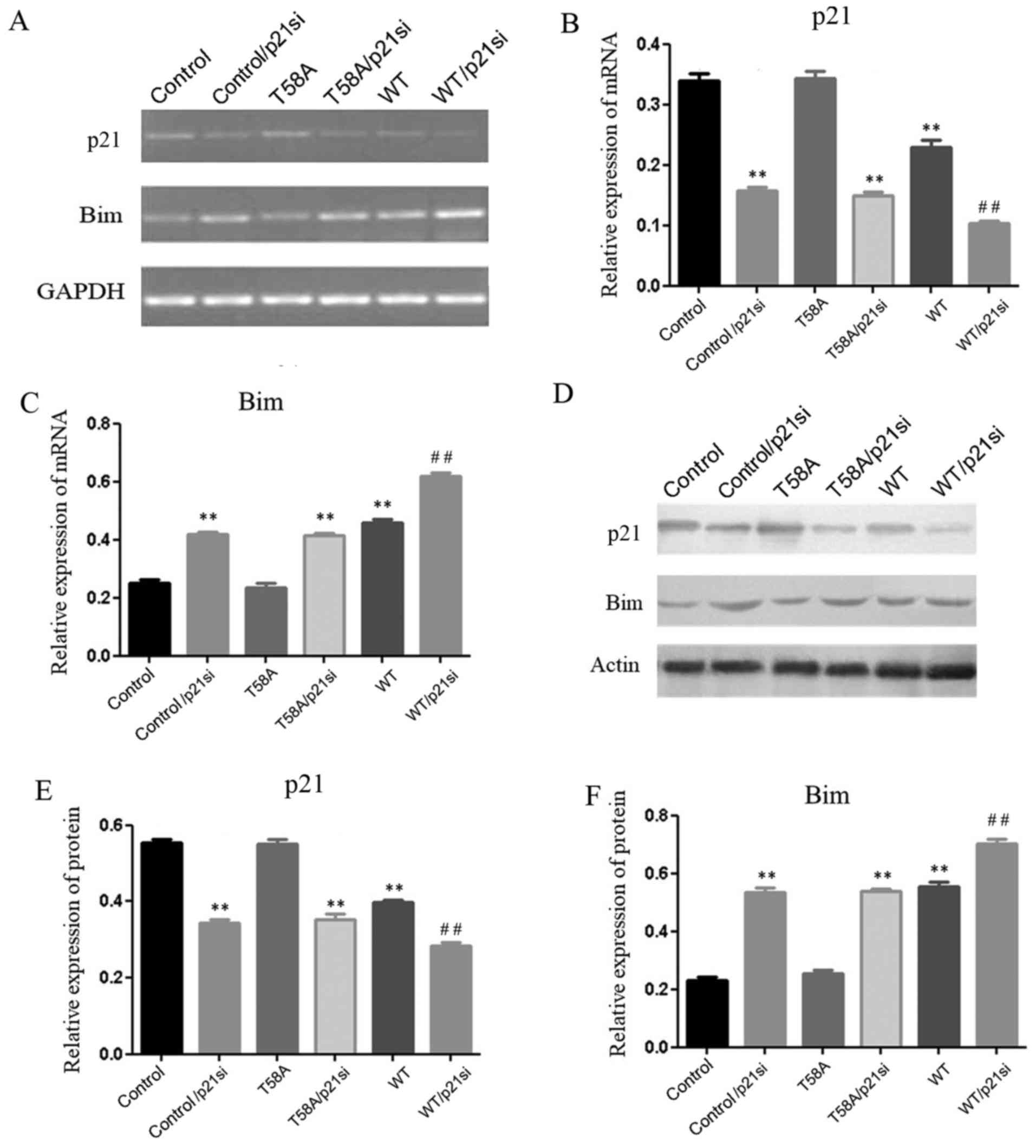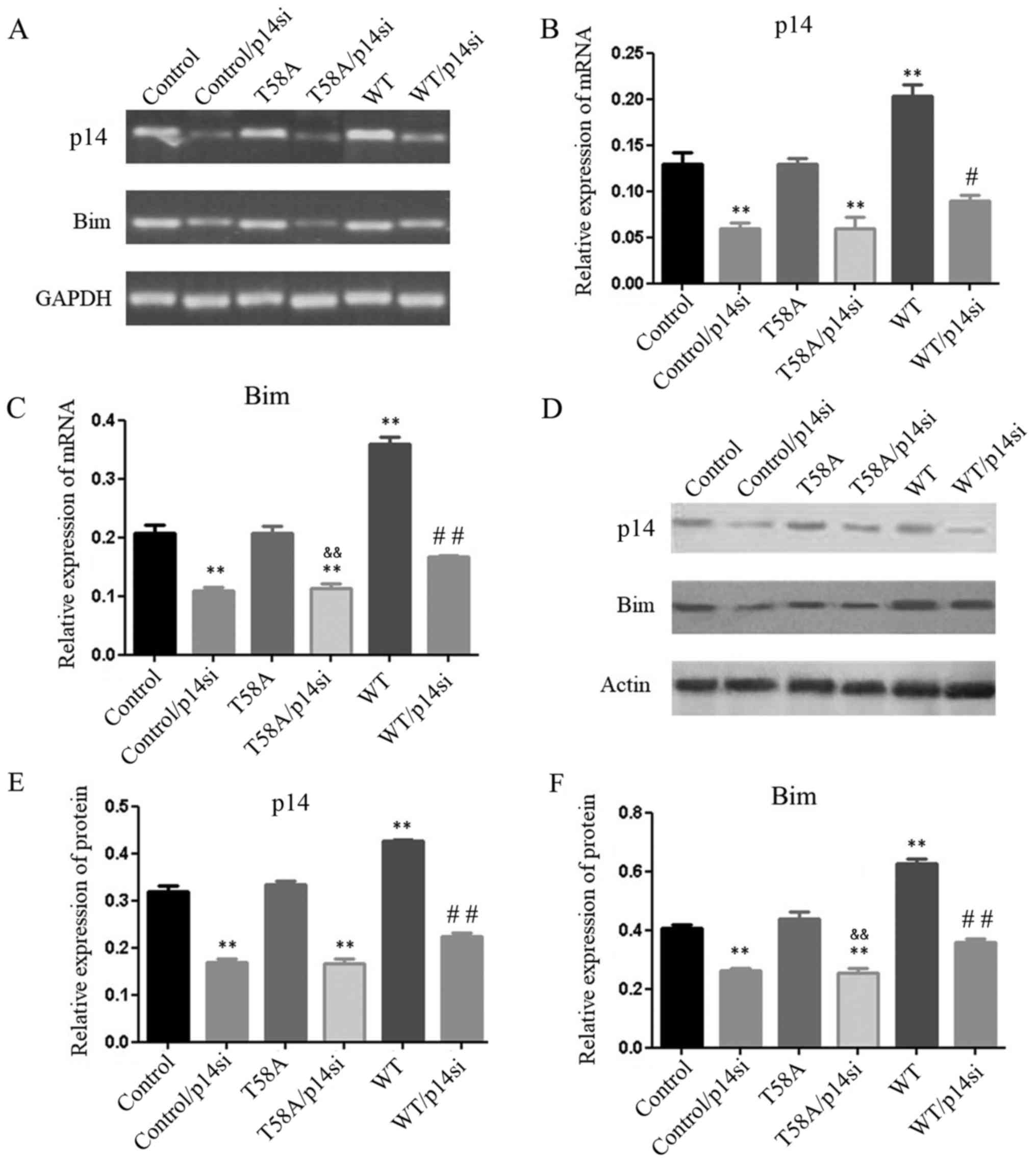|
1
|
Fallah Y, Brundage J, Allegakoen P and
Shajahan-Haq AN: MYC-Driven pathways in breast cancer subtypes.
Biomolecules. 7:E532017. View Article : Google Scholar : PubMed/NCBI
|
|
2
|
Eilers M and Eisenman RN: MYC's broad
reach. Genes Dev. 22:2755–2766. 2008. View Article : Google Scholar : PubMed/NCBI
|
|
3
|
Meyer N and Penn LZ: Reflecting on 25
years with MYC. Nat Rev Cancer. 8:976–990. 2008. View Article : Google Scholar : PubMed/NCBI
|
|
4
|
Chen Y and Olopade OI: MYC in breast tumor
progression. Expert Rev Anticancer Ther. 8:1689–1698. 2008.
View Article : Google Scholar : PubMed/NCBI
|
|
5
|
Hynes NE and Stoelzle T: Key signalling
nodes in mammary gland development and cancer: MYC. Breast Cancer
Res. 11:2102009. View
Article : Google Scholar : PubMed/NCBI
|
|
6
|
Efstratiadis A, Szabolcs M and Klinakis A:
Notch, MYC and breast cancer. Cell Cycle. 6:418–429. 2007.
View Article : Google Scholar : PubMed/NCBI
|
|
7
|
Chang DW, Claassen GF, Hann SR and Cole
MD: The MYC transactivation domain is a direct modulator of
apoptotic versus proliferative signals. Mol Cell Biol.
20:4309–4319. 2000. View Article : Google Scholar : PubMed/NCBI
|
|
8
|
Conzen SD, Gottlob K, Kandel ES, Khanduri
P, Wagner AJ, O'Leary M and Hay N: Induction of cell cycle
progression and acceleration of apoptosis are two separable
functions of MYC: Transrepression correlates with acceleration of
apoptosis. Mol Cell Biol. 20:6008–6018. 2000. View Article : Google Scholar : PubMed/NCBI
|
|
9
|
Hemann MT, Bric A, Teruya-Feldstein J,
Herbst A, Nilsson JA, Cordon-Cardo C, Cleveland JL, Tansey WP and
Lowe SW: Evasion of the p53 tumour surveillance network by
tumour-derived MYC mutants. Nature. 436:807–811. 2005. View Article : Google Scholar : PubMed/NCBI
|
|
10
|
Thibodeaux CA, Liu X, Disbrow GL, Zhang Y,
Rone JD, Haddad BR and Schlegel R: Immortalization and
transformation of human mammary epithelial cells by a tumor-derived
MYC mutant. Breast Cancer Res Treat. 116:281–294. 2009. View Article : Google Scholar : PubMed/NCBI
|
|
11
|
Delbridge AR, Pang SH, Vandenberg CJ,
Grabow S, Aubrey BJ, Tai L, Herold MJ and Strasser A: RAG-induced
DNA lesions activate proapoptotic BIM to suppress lymphomagenesis
in p53-deficient mice. J Exp Med. 213:2039–2048. 2016. View Article : Google Scholar : PubMed/NCBI
|
|
12
|
Kovi RC, Paliwal S, Pande S and Grossman
SR: An ARF/CtBP2 complex regulates BH3-only gene expression and
p53-independent apoptosis. Cell Death Differ. 17:513–521. 2010.
View Article : Google Scholar : PubMed/NCBI
|
|
13
|
Muthalagu N, Junttila MR, Wiese KE, Wolf
E, Morton J, Bauer B, Evan GI, Eilers M and Murphy DJ: BIM is the
primary mediator of MYC-induced apoptosis in multiple solid
tissues. Cell Rep. 8:1347–1353. 2014. View Article : Google Scholar : PubMed/NCBI
|
|
14
|
Campone M, Noël B, Couriaud C, Grau M,
Guillemin Y, Gautier F, Gouraud W, Charbonnel C, Campion L,
Jézéquel P, et al: MYC dependent expression of pro-apoptotic Bim
renders HER2-overexpressing breast cancer cells dependent on
antiapoptotic Mcl-1. Mol Cancer. 10:1102011. View Article : Google Scholar : PubMed/NCBI
|
|
15
|
Liu X, Li F, Meng C, Jiang D and Liu S:
Effects of mutant and wild-type c-myc on Bim expression in
non-p53-dependent pathway. Med J Qilu. 27:395–397. 2012.
|
|
16
|
Datta A, Nag A, Pan W, Hay N, Gartel AL,
Colamonici O, Mori Y and Raychaudhuri P: MYC-ARF (alternate reading
frame) interaction inhibits the functions of MYC. J Biol Chem.
279:36698–36707. 2004. View Article : Google Scholar : PubMed/NCBI
|
|
17
|
Qi Y, Gregory MA, Li Z, Brousal JP, West K
and Hann SR: p19ARF directly and differentially controls the
functions of MYC independently of p53. Nature. 431:712–717. 2004.
View Article : Google Scholar : PubMed/NCBI
|
|
18
|
Gregory MA, Qi Y and Hann SR: The ARF
tumor suppressor: Keeping MYC on a leash. Cell Cycle. 4:249–252.
2005. View Article : Google Scholar : PubMed/NCBI
|
|
19
|
Aslanian A, Iaquinta PJ, Verona R and Lees
JA: Repression of the Arf tumor suppressor by E2F3 is required for
normal cell cycle kinetics. Genes Dev. 18:1413–1422. 2004.
View Article : Google Scholar : PubMed/NCBI
|
|
20
|
Gogada R, Yadav N, Liu J, Tang S, Zhang D,
Schneider A, Seshadri A, Sun L, Aldaz CM, Tang DG and Chandra D:
Bim, a proapoptotic protein, up-regulated via transcription factor
E2F1-dependent mechanism, functions as a prosurvival molecule in
cancer. J Biol Chem. 288:368–381. 2013. View Article : Google Scholar : PubMed/NCBI
|
|
21
|
Abbas T and Dutta A: p21 in cancer:
Intricate networks and multiple activities. Nat Rev Cancer.
9:400–414. 2009. View
Article : Google Scholar : PubMed/NCBI
|
|
22
|
Dotto GP: p21WAF1/Cip1: More than a break
to the cell cycle? Biochim Biophys Acta. 1471:M43–M56.
2000.PubMed/NCBI
|
|
23
|
Collins NL, Reginato MJ, Paulus JK, Sgroi
DC, Labaer J and Brugge JS: G1/S Cell Cycle arrest provides anoikis
resistance through erk-mediated bim suppression. Mol Cell Biol.
25:5282–5291. 2005. View Article : Google Scholar : PubMed/NCBI
|
|
24
|
Sherr CJ: The INK4a/ARF network in tumour
suppression. Nat Rev Mol Cell Biol. 2:731–737. 2001. View Article : Google Scholar : PubMed/NCBI
|
|
25
|
Eischen CM, Roussel MF, Korsmeyer SJ and
Cleveland JL: Bax loss impairs MYCinduced apoptosis and circumvents
the selection of p53 mutations during MYCmediated lymphomagenesis.
Mol Cell Biol. 21:7653–7662. 2001. View Article : Google Scholar : PubMed/NCBI
|
|
26
|
Soussi T and Wiman KG: Shaping genetic
alterations in human cancer: The p53 mutation paradigm. Cancer
Cell. 12:303–312. 2007. View Article : Google Scholar : PubMed/NCBI
|
|
27
|
Valente LJ, Gray DH, Michalak EM,
Pinon-Hofbauer J, Egle A, Scott CL, Janic A and Strasser A: p53
efficiently suppresses tumor development in the complete absence of
its cell-cycle inhibitory and proapoptotic effectors p21, Puma, and
Noxa. Cell Rep. 3:1339–1345. 2013. View Article : Google Scholar : PubMed/NCBI
|
|
28
|
Strasser A, Harris AW, Jacks T and Cory S:
DNA damage can induce apoptosis in proliferating lymphoid cells via
p53-independent mechanisms inhibitable by Bcl-2. Cell. 79:329–339.
1994. View Article : Google Scholar : PubMed/NCBI
|
|
29
|
Huang DC and Strasser A: BH3-Only
proteins-essential initiators of apoptotic cell death. Cell.
103:839–842. 2000. View Article : Google Scholar : PubMed/NCBI
|
|
30
|
Meng CH, Li FN and Zhang DL: Construction
and significance of lentiviral vector with c-myc. Chin J Exp Surg.
4:543–546. 2011.
|
|
31
|
Wanzel M, Herold S and Eilers M:
Transcriptional repression by Myc. Trends Cell Biol. 13:146–150.
2003. View Article : Google Scholar : PubMed/NCBI
|
|
32
|
Wang X, Cunningham M, Zhang X, Tokarz S,
Laraway B, Troxell M and Sears RC: Phosphorylation regulates
c-Myc's oncogenic activity in the mammary gland. Cancer Res.
71:925–936. 2011. View Article : Google Scholar : PubMed/NCBI
|
|
33
|
Hollern DP, Yuwanita I and Andrechek ER: A
mouse model with T58A mutations in Myc reduces the dependence on
KRasmutations and has similarities to claudin-low human breast
cancer. Oncogene. 32:1296–1304. 2013. View Article : Google Scholar : PubMed/NCBI
|
|
34
|
Farnebo M, Bykov VJ and Wiman KG: The p53
tumor suppressor: A master regulator of diverse cellular processes
and therapeutic target in cancer. Biochem Biophys Res Commun.
396:85–89. 2010. View Article : Google Scholar : PubMed/NCBI
|
|
35
|
Mihara M, Erster S, Zaika A, Petrenko O,
Chittenden T, Pancoska P and Moll UM: p53 has a direct apoptogenic
role at the mitochondria. Mol Cell. 11:577–590. 2003. View Article : Google Scholar : PubMed/NCBI
|
|
36
|
Lee JY, Cho KS, Diaz RR, Choi YD and Choi
HY: p53 expression as a prognostic factor in upper urinary tract
urothelial carcinoma: A systematic review and meta-analysis. Urol
Int. 94:50–57. 2015. View Article : Google Scholar : PubMed/NCBI
|




















